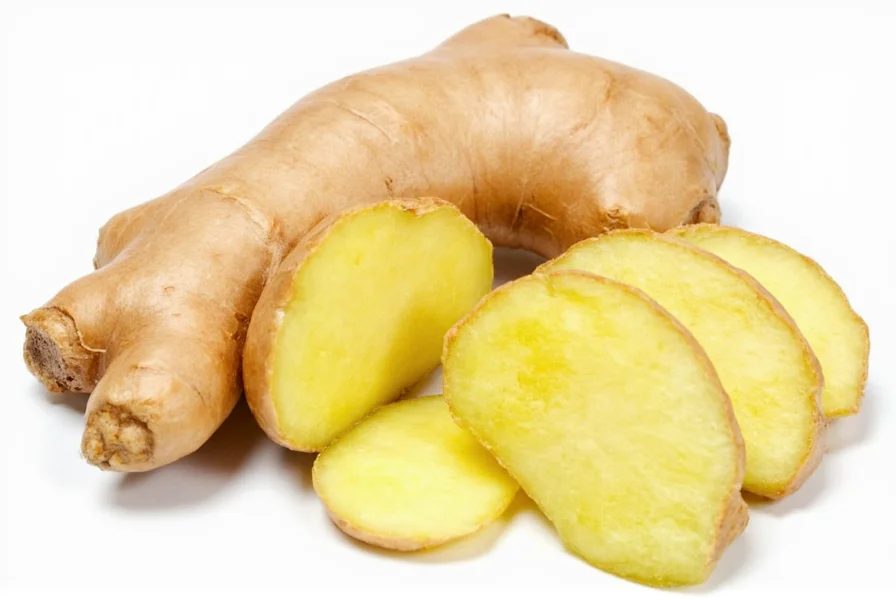For centuries, traditional medicine systems across Asia have utilized ginger for its therapeutic properties. Modern science now validates what ancient practitioners observed: ginger possesses significant anti-inflammatory effects that can benefit various health conditions. This article examines the scientific evidence behind ginger's anti-inflammatory capabilities and how to incorporate it effectively into your wellness routine.
The Science Behind Ginger's Anti-Inflammatory Properties
Ginger's primary bioactive compounds—gingerols, shogaols, paradols, and zingerone—work through multiple mechanisms to reduce inflammation. These compounds inhibit key inflammatory enzymes like cyclooxygenase (COX) and lipoxygenase (LOX), similar to how non-steroidal anti-inflammatory drugs (NSAIDs) function, but with a more favorable safety profile.
A comprehensive 2021 review published in Nutrients analyzed 12 clinical trials involving over 1,000 participants. The researchers concluded that ginger supplementation significantly reduced inflammatory markers, particularly in individuals with osteoarthritis, rheumatoid arthritis, and metabolic syndrome. The effective daily dosage ranged from 1,000 to 2,000 mg of ginger extract.
Ginger Versus Common Anti-Inflammatory Options
How does ginger compare to conventional anti-inflammatory approaches? The following table summarizes key differences:
| Option | Mechanism | Onset Time | Side Effects | Long-Term Safety |
|---|---|---|---|---|
| Ginger (1-2g/day) | Inhibits COX-2, reduces TNF-α and IL-6 | 2-4 weeks | Minimal (mild heartburn in sensitive individuals) | Excellent |
| NSAIDs (e.g., ibuprofen) | Inhibits COX-1 and COX-2 | 30-60 minutes | Gastrointestinal issues, kidney strain, cardiovascular risks | Poor with chronic use |
| Corticosteroids | Suppress immune response broadly | Hours to days | Weight gain, osteoporosis, blood sugar issues | Poor |
Practical Applications for Inflammation Management
Research suggests several effective ways to incorporate ginger for inflammation:
- Fresh ginger consumption: Adding 1-2 inches of fresh ginger to daily meals provides approximately 1,500-2,000 mg of active compounds
- Ginger tea: Steeping sliced ginger in hot water for 10 minutes creates a potent anti-inflammatory beverage
- Standardized extracts: Look for supplements containing 5% gingerols with a daily dose of 1,000-2,000 mg
- Topical applications: Ginger oil mixed with carrier oil can reduce localized inflammation when massaged into affected areas
A 2022 clinical trial in the Journal of Medicinal Food found that participants with knee osteoarthritis who consumed 1,500 mg of ginger extract daily experienced a 30% greater reduction in pain scores compared to placebo after 12 weeks. The researchers noted improvements in both pain and physical function.
Limitations and Considerations
While ginger shows promise as an anti-inflammatory agent, it's important to understand its limitations:
- Ginger works more gradually than pharmaceutical options—most studies show benefits emerging after 4-8 weeks of consistent use
- It may interact with blood-thinning medications like warfarin due to its mild anticoagulant properties
- Pregnant women should consult their healthcare provider before using therapeutic doses
- Ginger's effectiveness varies by individual based on metabolism and the specific inflammatory condition
For those exploring natural anti-inflammatory solutions, understanding how does ginger reduce inflammation in the body provides valuable context. The compound 6-gingerol specifically inhibits the NF-kB pathway, a master regulator of inflammation, while also reducing oxidative stress that contributes to chronic inflammation.
When to Consult a Healthcare Professional
While ginger is generally safe for most people, consult a healthcare provider if:
- You're taking blood thinners or diabetes medications
- You have a bleeding disorder
- You're scheduled for surgery within two weeks
- Your inflammation symptoms persist despite consistent ginger use for 8-12 weeks
For individuals researching is fresh ginger anti inflammatory compared to supplements, research indicates both forms are effective, though standardized extracts provide more consistent dosing of active compounds. Fresh ginger offers additional dietary benefits through its fiber and vitamin content.
Conclusion
Scientific evidence strongly supports ginger's role as a natural anti-inflammatory agent. Its multiple mechanisms of action, favorable safety profile, and versatility make it a valuable component of an inflammation management strategy. While not a replacement for medical treatment in serious inflammatory conditions, regular ginger consumption can complement conventional approaches and potentially reduce reliance on pharmaceutical anti-inflammatories for some individuals.
Frequently Asked Questions
How long does it take for ginger to reduce inflammation?
Most clinical studies show measurable reductions in inflammatory markers after 4-8 weeks of consistent daily consumption. The typical effective dose is 1,000-2,000 mg of ginger extract or 1-2 inches of fresh ginger daily. Individual response times vary based on metabolism and the specific inflammatory condition being addressed.
What's the best way to consume ginger for inflammation?
For maximum anti-inflammatory benefits, combine multiple forms: add fresh ginger to cooking (1-2 inches daily), drink ginger tea (using 1 inch steeped for 10 minutes), and consider a standardized extract providing 5% gingerols (1,000-2,000 mg daily). Cooking ginger slightly increases shogaol content, which has potent anti-inflammatory properties, while raw ginger preserves more gingerols.
Can ginger replace NSAIDs for inflammation?
Ginger works through similar pathways as NSAIDs but with a slower onset and milder effect. It may reduce the need for NSAIDs in mild to moderate inflammation cases, but shouldn't replace prescribed medications without consulting your healthcare provider. Research shows ginger can be particularly effective as a complementary approach, potentially allowing for lower NSAID doses and reduced side effects.
Does ginger help with arthritis inflammation specifically?
Yes, multiple studies demonstrate ginger's effectiveness for arthritis-related inflammation. A meta-analysis in Osteoarthritis and Cartilage found ginger supplementation reduced pain scores by 30% and improved physical function in osteoarthritis patients. For rheumatoid arthritis, ginger's effects are more modest but still significant, particularly when used consistently over several months.
Are there any side effects of using ginger for inflammation?
Ginger is generally well-tolerated, but some people experience mild heartburn, especially with higher doses. It may interact with blood-thinning medications due to its mild anticoagulant properties. Consuming more than 4 grams daily can cause gastrointestinal discomfort in sensitive individuals. Those with gallstones should consult a doctor before using therapeutic doses, as ginger may increase bile production.











 浙公网安备
33010002000092号
浙公网安备
33010002000092号 浙B2-20120091-4
浙B2-20120091-4